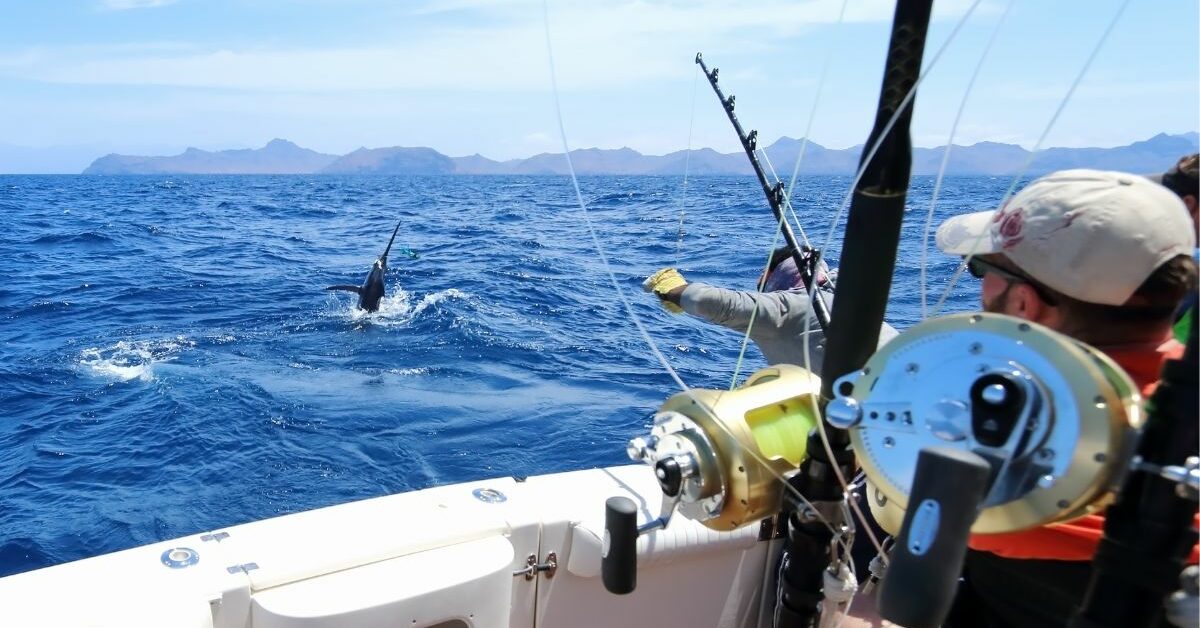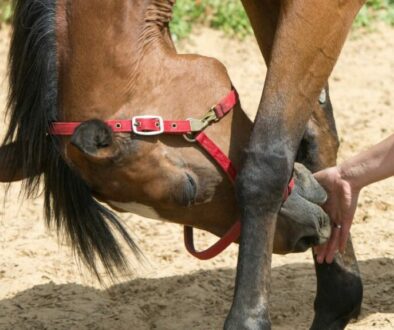How To Become A Fishing Guide?
Fishing is a popular recreational activity enjoyed all around the world. For those who have a passion for fishing and love being outdoors, becoming a fishing guide is an excellent career option. Fishing guides are knowledgeable experts who take customers out on fishing expeditions and help them catch fish. It’s a rewarding job that offers many benefits such as working outside, being your own boss, and sharing your passion for fishing with others. If you’re wondering how to become a fishing guide, this article outlines the essential steps and skills needed to succeed in this profession.
Steps To Becoming A Fishing Guide
Before setting out on this career path, you should know that becoming a fishing guide takes significant effort and dedication. Here are the primary steps to follow:
- Obtain Relevant Certifications
The first step in becoming a fishing guide is to acquire the necessary certifications. Required certifications vary based on your location, but typically include a first-aid certificate, a boating safety certificate, and a fishing license. Certification requirements also depend on the type of water you will guide on: freshwater, saltwater, or both.
It is important to note that obtaining these certifications is not only a legal requirement, but it also shows your clients that you are a professional and take their safety seriously. Additionally, having a fishing license allows you to legally fish in the waters you will be guiding in, which is essential for building your fishing experience. - Gain Fishing Experience
It’s important to have a strong understanding of different fish species and their habits, so gaining fishing experience is vital to becoming a fishing guide. Spend time fishing in various locations and different types of water. Take note of the gear and bait you use, techniques you employ, and the species you catch.
By gaining fishing experience, you will also learn about the different types of fish that are popular in your area, which will help you tailor your services to your clients. Additionally, fishing experience will help you develop a keen eye for spotting fish, which is essential for guiding your clients to the best fishing spots. - Build a Network
Building a network of contacts can help you find clients and increase your exposure as a fishing guide. Join fishing organizations and attend fishing events to connect with other anglers and potential clients. Participate in online fishing forums to showcase your knowledge and expertise as a guide.
Networking is essential for any business, and the fishing guide industry is no exception. By building a network of contacts, you can learn about new fishing spots and techniques, as well as connect with potential clients. Word of mouth is a powerful marketing tool, so make sure to provide excellent service to your clients to encourage them to recommend you to others. - Get a Fishing Guide or Charter License
If you plan to operate a fishing charter boat, you will need to obtain a charter license. Requirements for a license vary by state. To acquire a fishing guide permit, you must pass a test, demonstrate fishing competence, and prove that you can safely operate a boat.
Obtaining a fishing guide or charter license is an important step in becoming a professional fishing guide. These licenses demonstrate that you have the necessary skills and knowledge to provide a safe and enjoyable fishing experience for your clients. Additionally, having a license allows you to legally operate a fishing charter boat and guide clients to the best fishing spots.
In conclusion, becoming a fishing guide requires dedication, hard work, and a love for fishing. By following these steps, you can build the necessary skills, knowledge, and network to become a successful fishing guide and provide your clients with an unforgettable fishing experience.
Skills Needed For Becoming A Fishing Guide
Besides certification and experience, becoming a fishing guide requires specific skills that contribute to your success. These skills include:
1. Excellent Customer Service
As a fishing guide, you’ll work with many different clients. Excellent customer service skills, including strong communication and interpersonal skills, are necessary for building long-term relationships with clients. Understanding your client’s needs and adjusting your fishing strategy based on their goals will help ensure their satisfaction.
Providing excellent customer service also means going above and beyond for your clients. This could include providing snacks and refreshments on the boat, offering to take photos of your clients with their catch, or even recommending local restaurants for them to try after the fishing trip.
2. Knowledge of Different Fishing Techniques
Having a broad understanding of different fishing techniques means you’ll be able to help clients catch fish regardless of the conditions. You should be knowledgeable about using live bait, artificial lures, and topwater plugs, and skilled in casting, trolling, and fly fishing.
It’s also important to stay up-to-date on the latest fishing trends and techniques. This could mean attending seminars or workshops, or even just reading fishing blogs and articles in your free time.
3. Safety Awareness
Safety is key when taking clients out on the water. You must be prepared for emergencies and have the necessary safety equipment on board. Routinely check the boat to ensure it’s seaworthy and follow all safety guidelines and regulations.
Additionally, it’s important to educate your clients on basic safety procedures, such as wearing life jackets and avoiding standing up in the boat while it’s moving. By prioritizing safety, you’ll not only protect your clients but also build trust and credibility as a fishing guide.
4. Knowledge of Local Waters
Knowing the local waters is essential for a successful fishing trip. This includes understanding the types of fish that are commonly found in the area, as well as the best times and locations to catch them.
Take the time to explore different areas and experiment with different techniques. This will not only help you become a better fishing guide but also provide a more enjoyable experience for your clients.
5. Patience and Flexibility
Fishing can be a frustrating sport, and not every trip will result in a successful catch. As a fishing guide, it’s important to remain patient and understanding, even when your clients are feeling discouraged.
Flexibility is also key. Weather conditions can change rapidly, and it’s important to have backup plans in case your original fishing spot is no longer viable. By remaining patient and flexible, you’ll be able to provide a positive experience for your clients regardless of the circumstances.
What is A Fishing Guide?
A fishing guide is a fishing expert who takes people on fishing trips. Guides are hired to take people to specific bodies of water and help them catch fish. They are experts on the fish species in the area, the fishing gear, techniques, and bait to use to catch them. Guides can work on boats, wading, or on shore, and typically charge an hourly fee or have a half or full-day rate.
When hiring a fishing guide, it is important to find someone who knows the area well. A good guide will be able to take you to the best fishing spots and help you catch the most fish possible. They will also be able to teach you about the different fish species in the area and the best techniques to use to catch them.
Fishing guides can be found all over the world, from the remote wilderness of Alaska to the crystal-clear waters of the Caribbean. Some guides specialize in fly fishing, while others focus on deep-sea fishing. No matter what type of fishing you enjoy, there is a guide out there who can help you catch more fish and have a great time doing it.
Guides can also provide all the necessary fishing gear, including rods, reels, and bait. This can be especially helpful for people who are new to fishing or who don’t have their own gear. Some guides even offer lodging and meals as part of their packages, making for a truly all-inclusive fishing experience.
Another benefit of hiring a fishing guide is that they can help you learn about the local environment and wildlife. Many guides are knowledgeable about the plants and animals in the area and can provide interesting insights into the natural world around you. This can make for a truly enriching experience, especially for those who love nature and the outdoors.
Hiring a fishing guide is a great way to improve your fishing skills, catch more fish, and have a fun and educational experience. Whether you are a seasoned angler or a beginner, there is a guide out there who can help you have the fishing trip of a lifetime.
The Benefits of Working as A Fishing Guide
Working as a fishing guide comes with several benefits:
1. Being Your Own Boss
Fishing guides have the freedom to set their own schedules and rates and can choose to work full-time or part-time. You control your business and have the flexibility to choose the jobs that suit you best.
2. Sense of Accomplishment
Being a fishing guide allows you to share your knowledge and passion with others, which is a rewarding feeling. Seeing your clients catch fish is a satisfying accomplishment and can lead to client recommendations and repeat business.
3. Working Outside
Working outside allows fishing guides to enjoy nature, breathe in fresh air, and take in the beautiful landscapes. Guides also have the opportunity to fish regularly, meaning they get to indulge in their favorite hobby while earning a living.
4. Income Potential
The income potential as a fishing guide varies depending on location and experience, but it’s possible to earn a decent living with this profession. Guides can supplement their income during the offseason by holding training seminars, tying flies, or working in a tackle shop.
Becoming a fishing guide requires determination, passion, and patience. It takes time to build a customer base and establish your business, but with the right certifications and the skills mentioned above, you can enjoy a rewarding career as a fishing guide.




